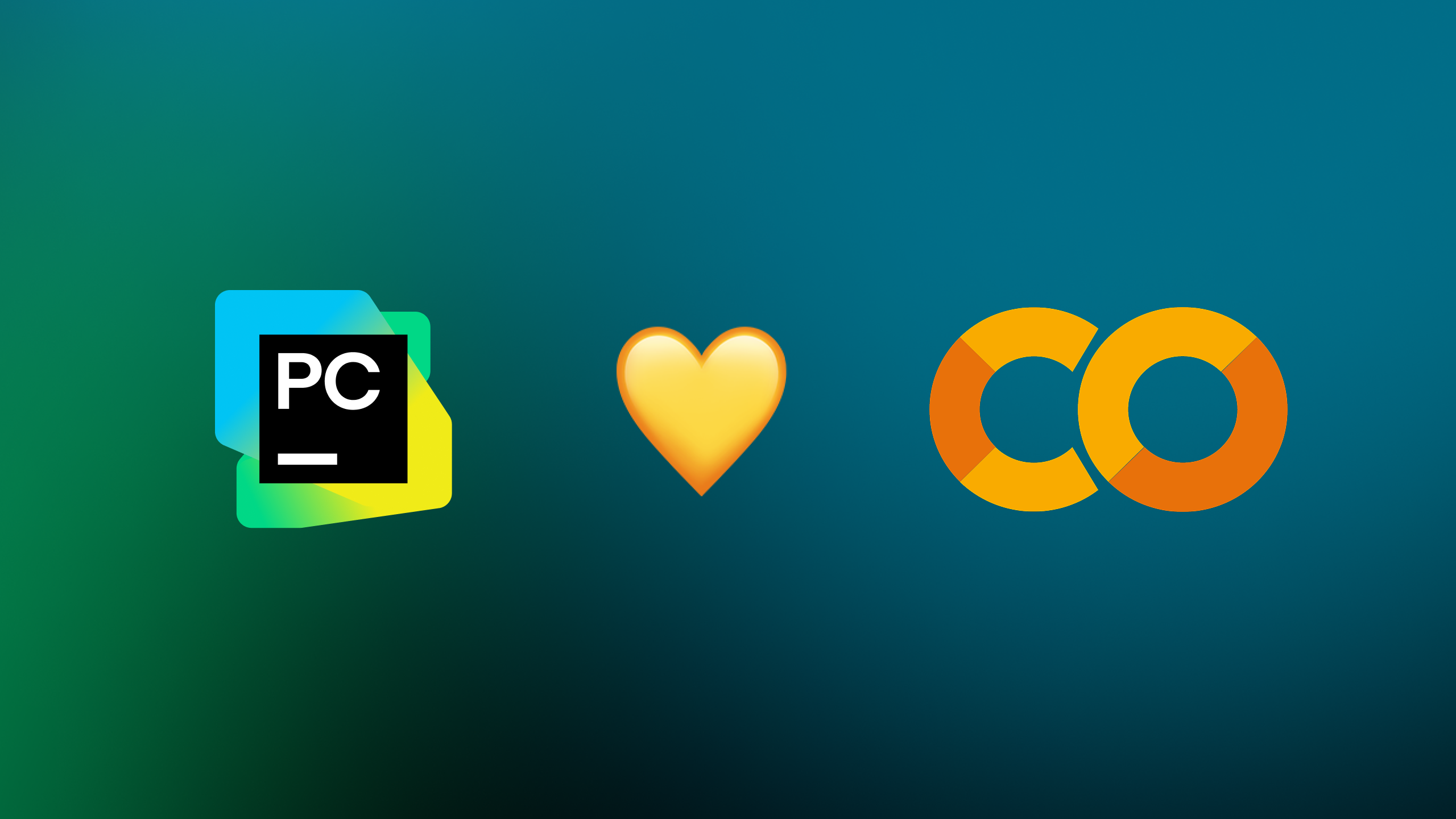What’s New in PyCharm 2023.1
PyCharm 2023.1 is out! The first major release of the year brings support for remote Jupyter notebooks, enhancements to the new UI, improved type inference for generics, and much more.
See the new features in action! Join our YouTube stream on April 3 at 17:00 CEST (15:00 UTC). Your questions are welcome!

New UI
We’ve been working on the new UI for PyCharm for quite some time. The new UI reduces visual complexity, provides easy access to essential features, and progressively discloses complex functionality as needed, resulting in a cleaner look and feel. Among the key changes are the simplified main toolbar, new tool window layout, new themes, and updated icons.
In PyCharm 2023.1, we have enabled the new UI by default for new PyCharm Community edition users. PyCharm Professional users will still have the classic UI by default. To switch the new UI on, navigate to Settings / Preferences | Appearance & Behavior | New UI.
We encourage you to give the new UI a try and share your feedback with us on our issue tracker.
Here is a brief overview of how the new UI differs from the classic one.
New Widgets
Now you can complete routine tasks more quickly, such as switching between projects with the Project widget, making use of the most popular VCS tasks directly from the main window header with the VCS widget, and managing run/debug configurations with the Run widget.
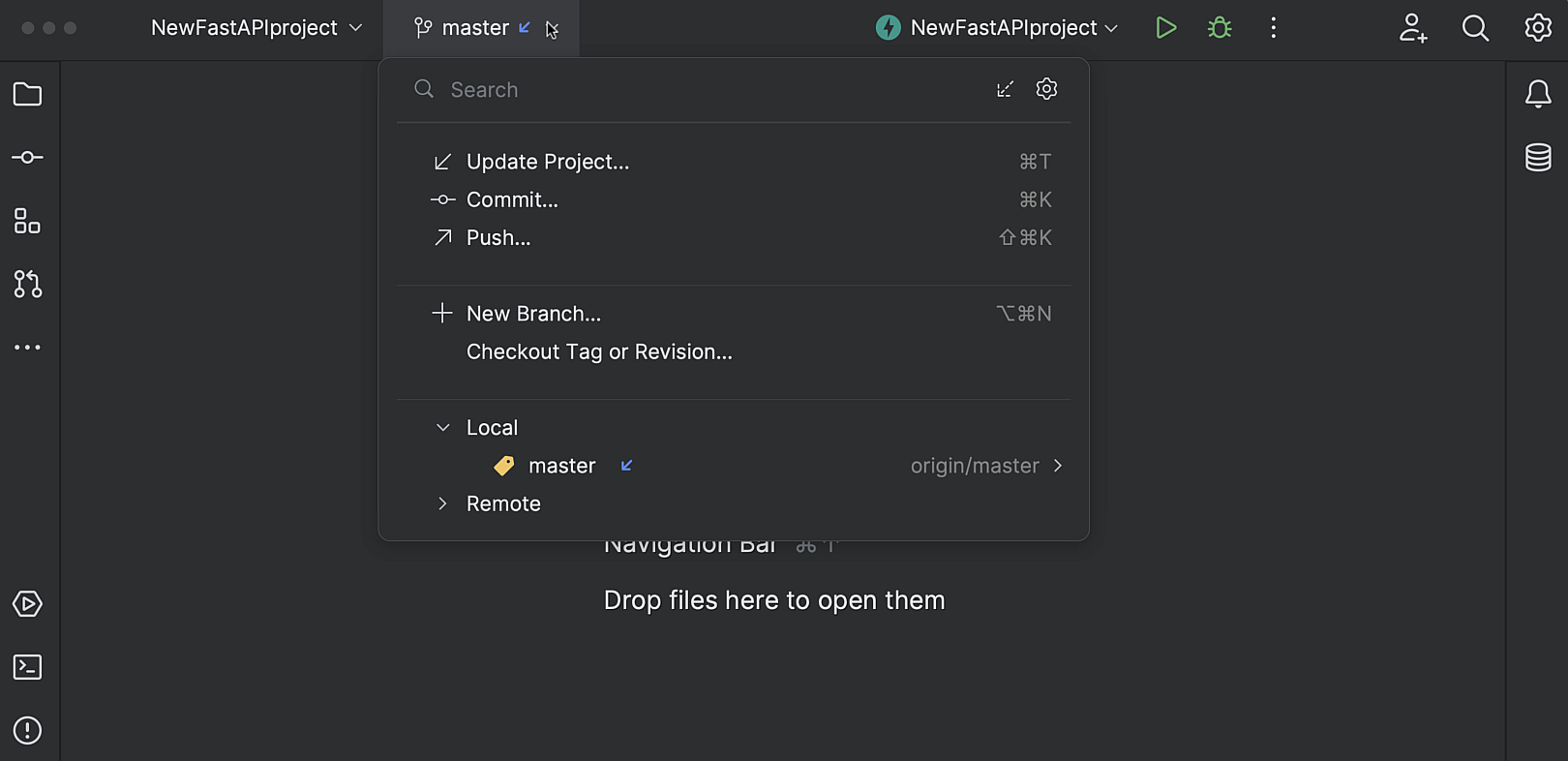
Updated Navigation Between Tool Windows
Tool windows are now represented by icons on the tool window bars. This allows you to locate more tool windows on each tool window bar and simplifies visual navigation.
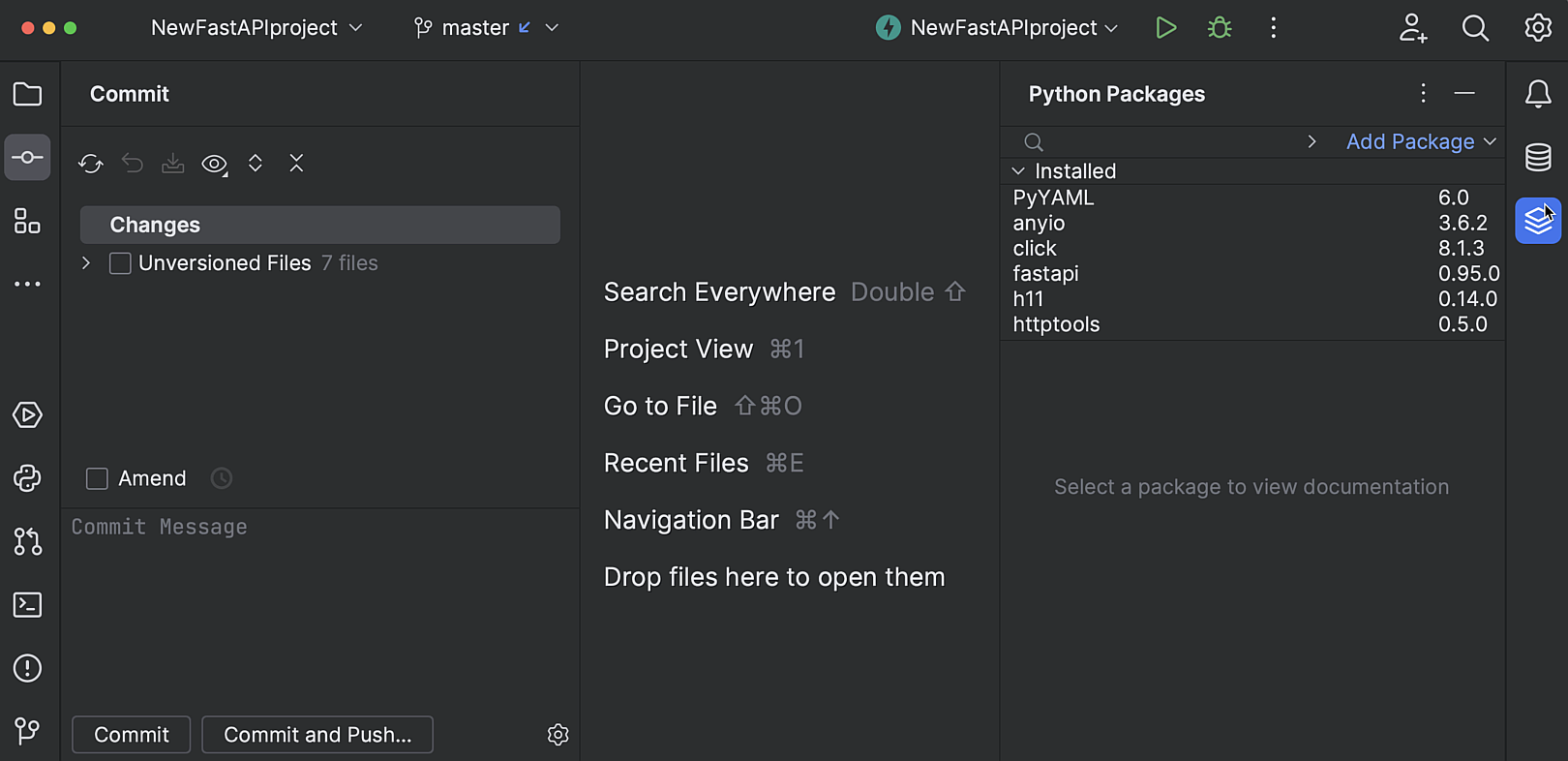
Redesigned Debug Tool Window
Two separate toolbars with the main debug actions were streamlined and moved to a single toolbar near the tool window tabs for better screen space management.
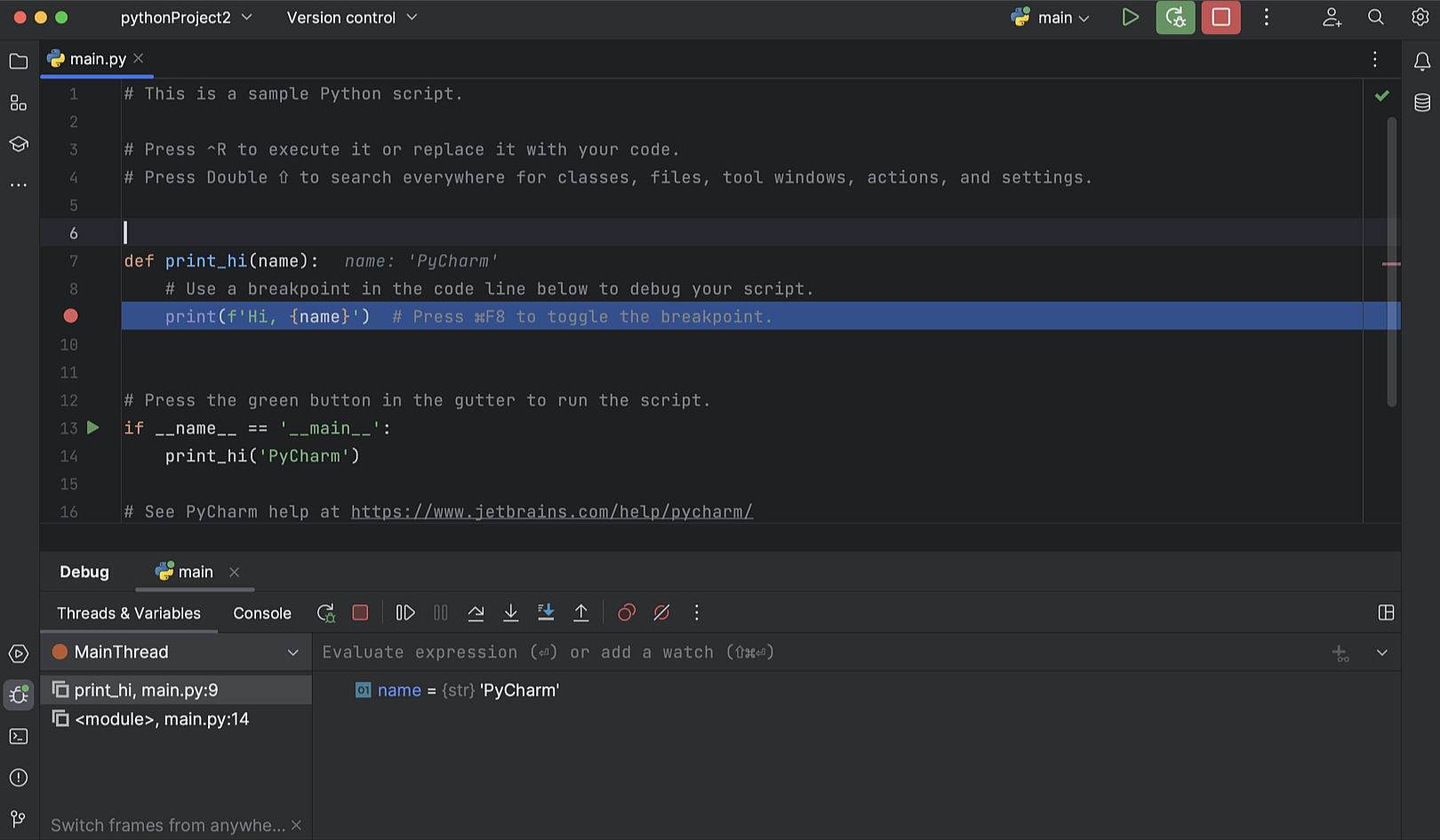
Compact Mode
Compact Mode works best for smaller screens. It provides a more consolidated look and feel thanks to scaled-down spacings and elements.
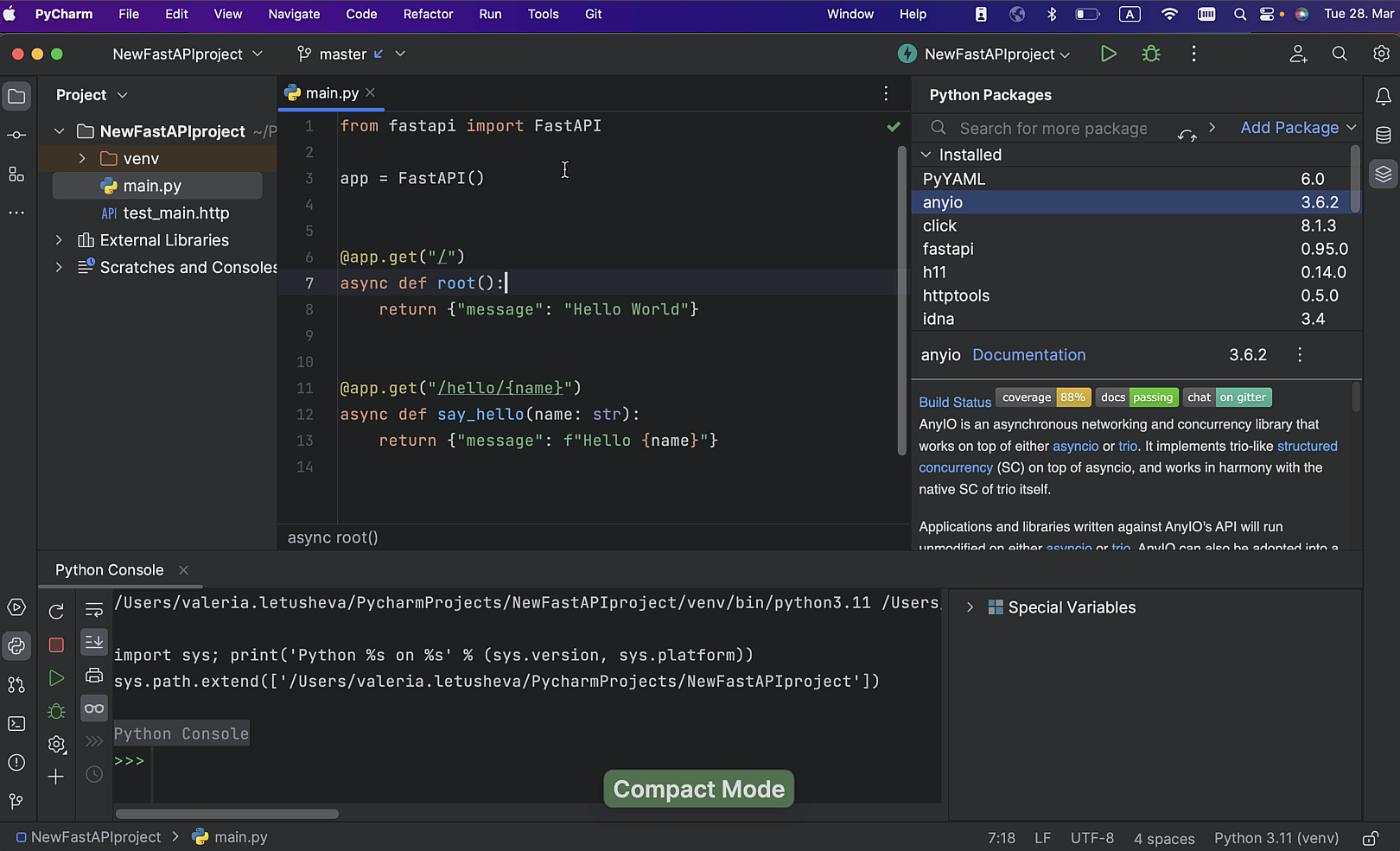
Support for Remote Jupyter notebooks
Now you can work with remote notebooks straight from your IDE. You can copy, paste, and rename remote Jupyter notebooks between local and remote machines. Debugging individual cells inside remote notebooks is now also possible. Multiple breakpoints can be set per cell, and the Step Into and Step Over functionalities can be used for error diagnostics.
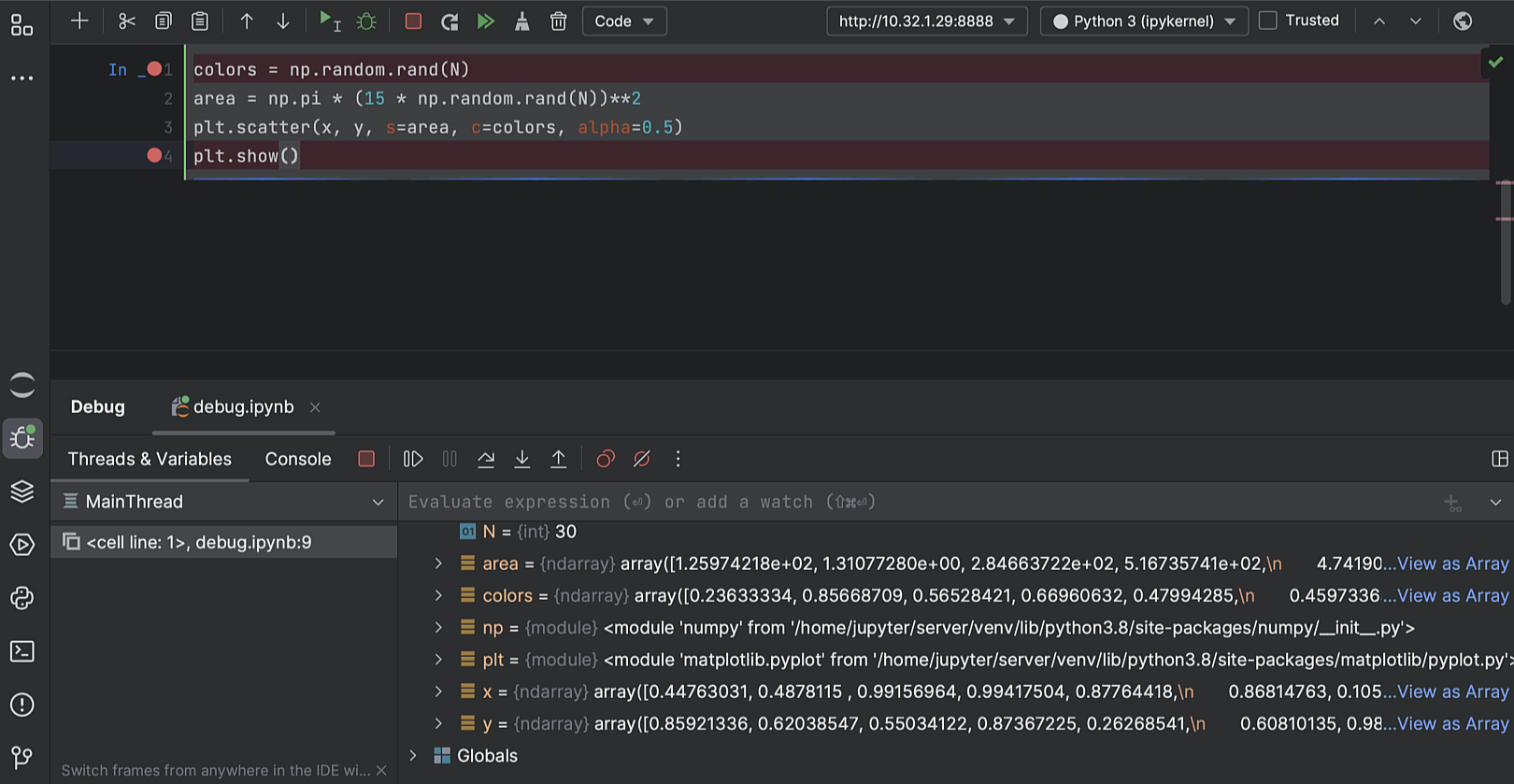
Connect to remote Jupyter servers
To attach a remote Jupyter server to your project in PyCharm, select Tools | Add Jupyter Connection from the main menu and choose Connect to Jupyter server using URL in the popup. The remote server will be bound to this specific project.
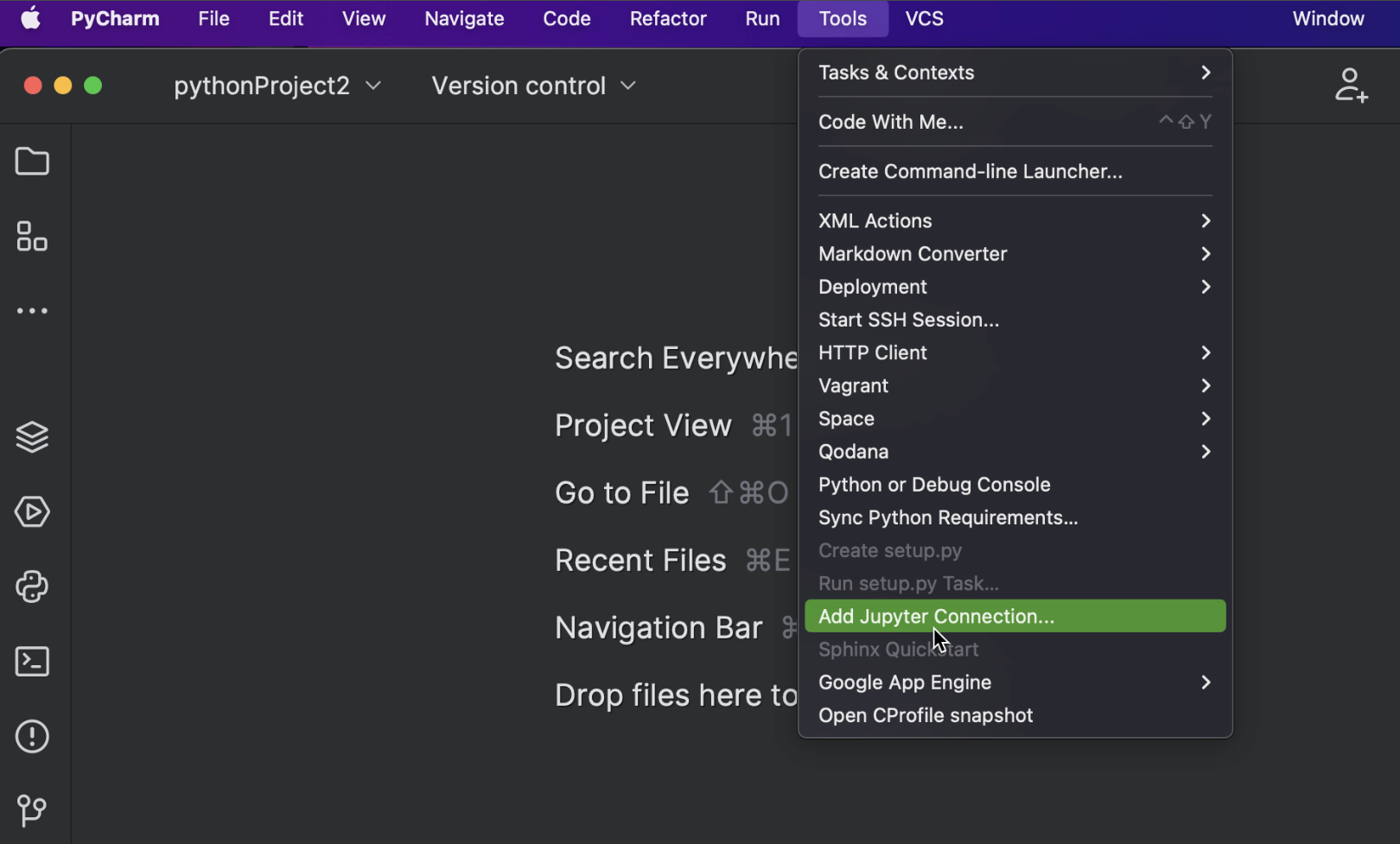
To fetch the latest remote version of the notebook from the server, select Reload from Server in the context menu.
Editor
Better type inference for generics
The IDE now features improved handling for hierarchies of generic classes and generic protocols, resolving many long-standing problems with type hinting.
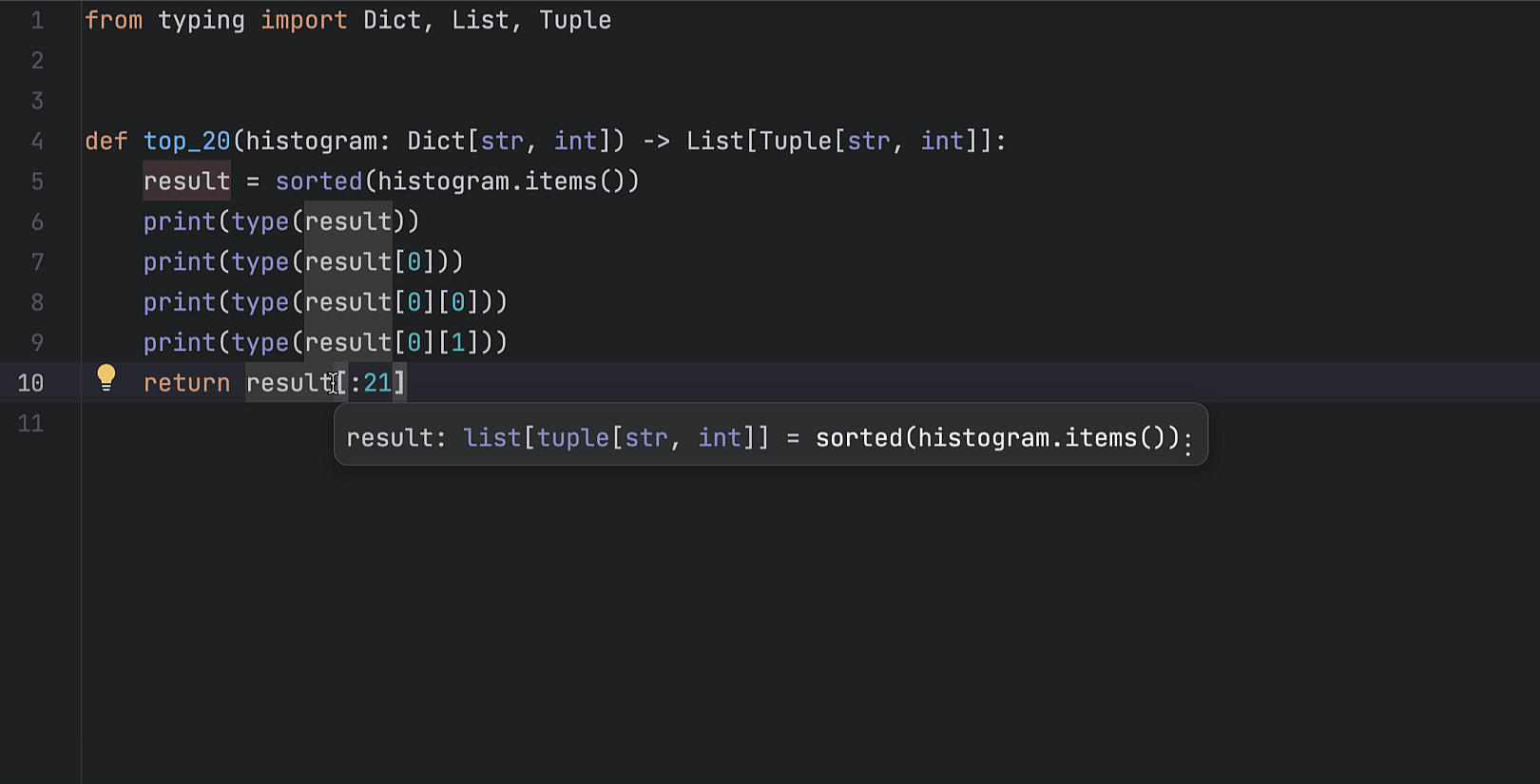
Better syntax highlighting in Quick Documentation
The Quick Documentation tooltip now provides syntax highlighting for the definition of the selected expression, inferred type, and clickable links for definition elements. You can call a tooltip, press ⌘, and hover the mouse pointer over the expression (or place the caret on it).
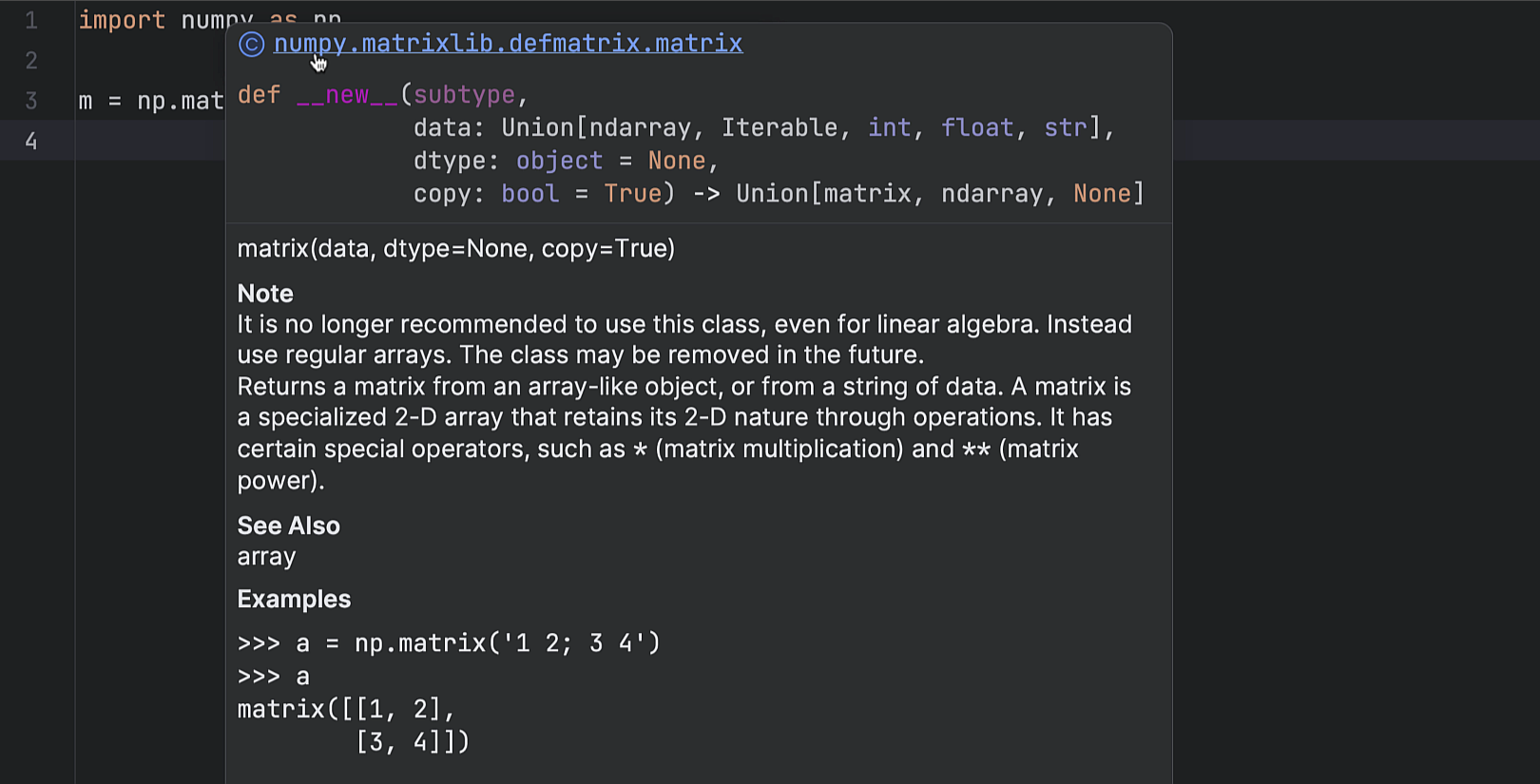
Manage packages for multiple projects at a glance
The Python Packages tool window now supports a workflow in which you have a dependent project attached to your primary one. After choosing the project in the additional panel on the left of the tool window, you can install and uninstall packages and manage their versions for each project.

Code Vision: inlay hints for usages
It’s now easier to keep track of class implementations and overriding methods with the new usages inlay hints. They show the number of times a symbol is used right above its declaration, and allow you to navigate to a usage.
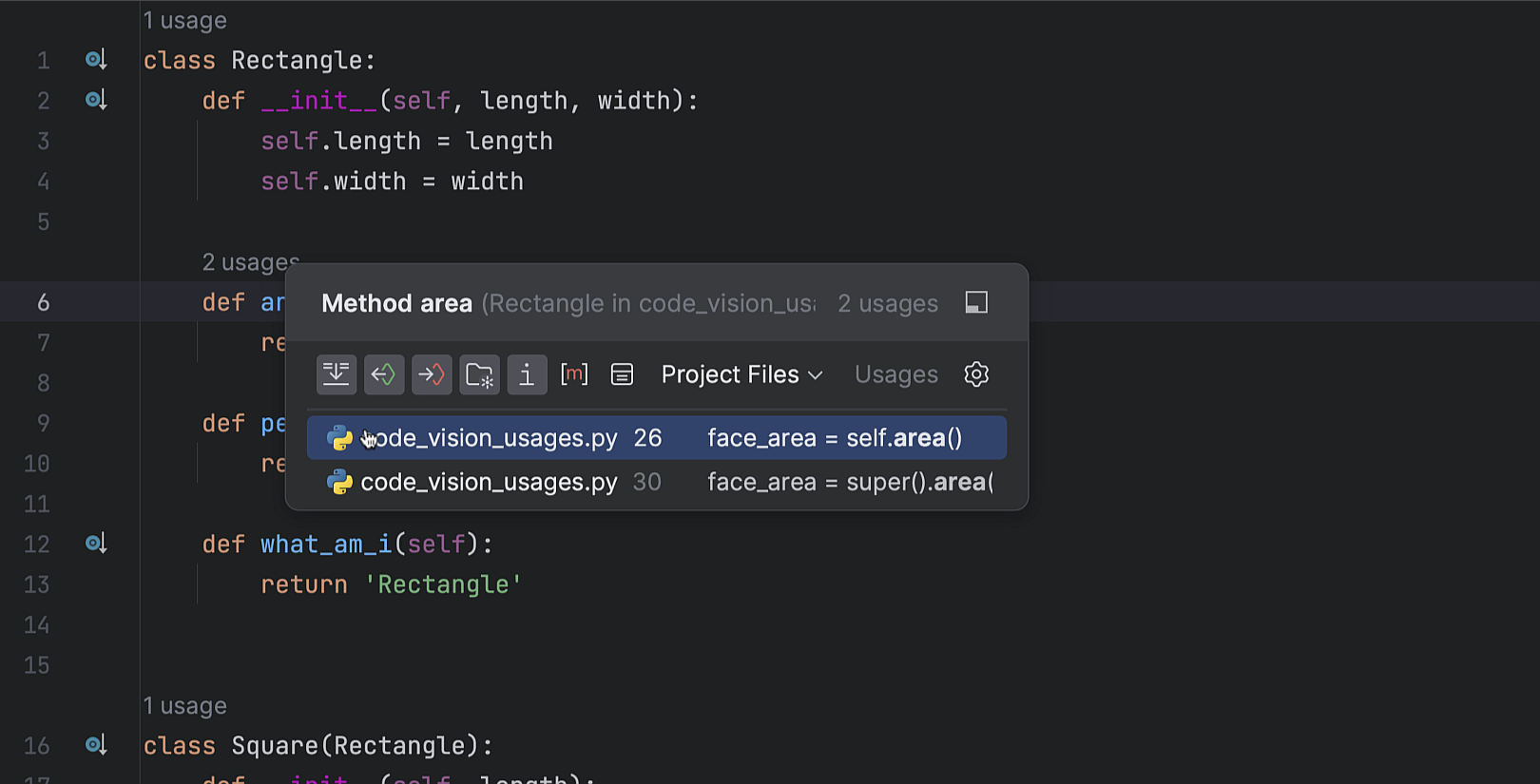
If you want to turn them off, hover over a hint and select Hide ‘Code Vision: Usages’ Inlay Hints from the context menu.
Inline prompt for Rename refactoring
We updated the way Rename refactoring is used in PyCharm. Instead of typing a new name in the popup dialog, you can now change it through the inline prompt form.
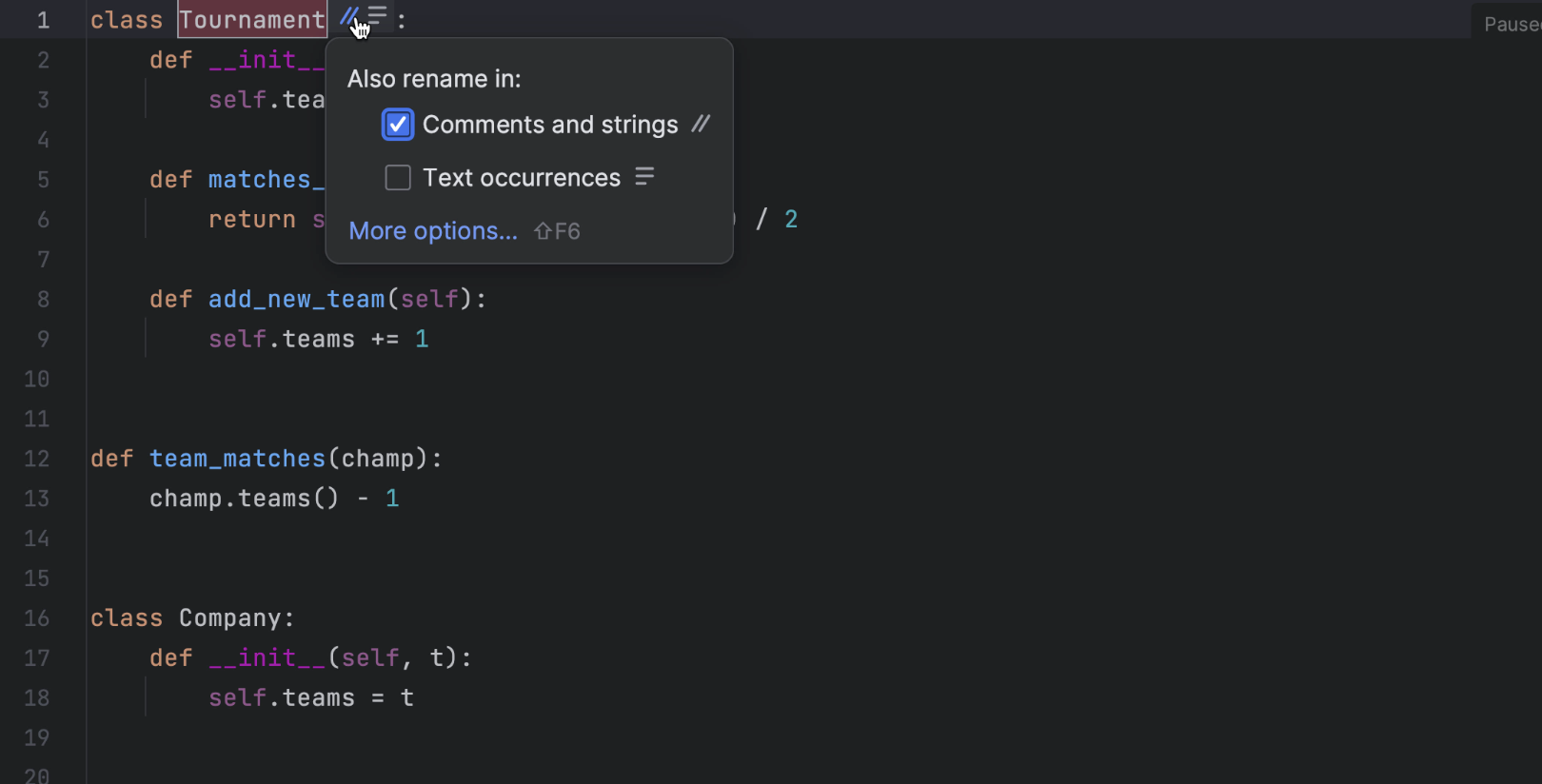
Further improvements
There are many more updates in PyCharm 2023.1, including Astro support for blazing fast frontend development, improved code review workflows for GitHub, reworked commit check behavior, and merged logs from all Docker-compose containers in the Dashboard tab of the Docker-compose node. Check out the What’s New Page for PyCharm 2023.1 and try the new features in the IDE!
What’s New in PyCharm 2023.1 live stream
See the new features in action! Join our YouTube stream on April, 3 at 17:00 CEST (15:00 UTC), where Paul Everitt, Helen Scott, and Jodie Burchell will look into PyCharm 2023.1 and answer your questions!
Stay tuned for further updates, and share your feedback in the comments section, on our issue tracker, or on Twitter!
The PyCharm team
Subscribe to PyCharm Blog updates


